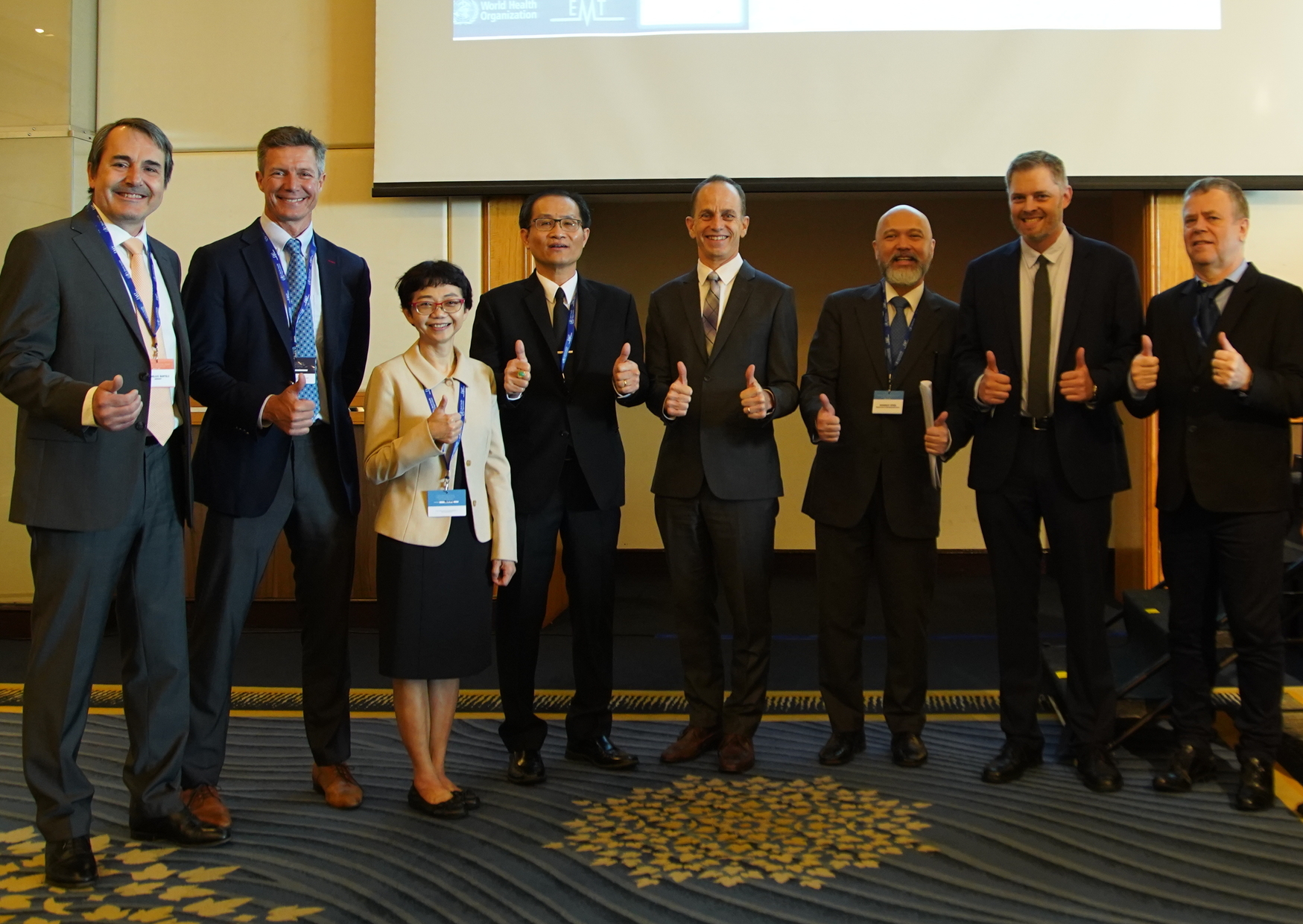
Bangkok, 12 June 2019 ÔÇô In the Thai capital, Bangkok, the third Global Meeting of Emergency Medical Teams was inaugurated on Wednesday (June 12), gathering responders from all over the world who are actively involved in helping patients and victims during disease outbreaks, natural disasters, conflict, and complex emergencies both nationally and internationally. About 400 people are attending the meeting, which spans over three days, representing 90 countries and 200 organizations.
ÔÇ£The wide range of teams and countries participating in the meeting alone shows the global character of this initiative. It also confirms that from time to time, a global meeting is justified and needed. Every one of the six regions participating has its culture, its background, and its knowledge and its specific challenges and it is facing different problems We respect that. It is important for the further development, according to the regional and global needs,ÔÇØ said Ambassador Toni Frisch, the chairman of the Strategic Advisory Group.
Emergency Medical Teams (EMT) play a crucial role in responding quickly to disease outbreaks and natural disasters around the globe. The ability to mobilize and deploy teams rapidly to emergency settings means better chances of survival for victims and patients, whether it is following a tropical cyclone, an earthquake, or an epidemic. The World Health Organization EMT Initiative, established in 2014, places a strong focus on helping every country develop its teams and capacity. But often, disasters and epidemics transcend national borders and require regional or even international response. This is why EMT Initiative also supports the training and classification of medical teams that can be deployed to assist other countries during emergencies if required.
It is not a coincidence that the event is taking place in Bangkok as Thailand is preparing to be classified in July as the first international team in the South-East Asia region. ÔÇ£The South East Asia region is vulnerable to many types of disasters and various hazards. In fact, the World disastersÔÇÖ report for 2018 estimates that around 26% of global mortality for disasters is in the countries of South East Asia region. SEARO region in WHO is composed of 11 countries and so it is quite interesting and quite heartening that four countries are now in the process of verification to be able to be deployed globally,ÔÇØ said Dr Roderico Ofrin, Regional Emergency Director. ÔÇ£It is great pride that there is such acceptance and commitment for this initiative in the region because it is also a lot of work. Thailand is the first one; it will be completed by July. We also have Bhutan, Indonesia, and Sri Lanka,ÔÇØ he added.
The focus of the initiative and the meeting remains on developing countriesÔÇÖ capacities and with national respondersÔÇÖ teams. ÔÇ£The best teams to respond to an outbreak or to an increasing number of clinical cases following a natural disaster or during a conflict are the national teams who had a lot of help and preparations from the regional and international community, because we are one synergistic group. You can see it happening right now in Uganda, where the first Ebola case was confirmed on Tuesday. The ministry of health had a ready plan, acted immediately, mobilizing national resources, providing care, and investigating the contacts. It shows that preparedness, readiness, and response are inseparable,ÔÇØ said Dr Ian Norton, Emergency Medical Teams Initiative manager at WHO.
The meeting will conclude on Friday (June 14). Apart of discussions within regional groups to discuss regional implementations, joint trainings and exercises, the meeting will focus on various fields such as logistics (examples of sessions: ÔÇ£Field Hospital: Design, Fuel, and PowerÔÇØ, ÔÇ£How to set-up a deployable Field FacilityÔÇØ), coordination and administration including data management, developments in clinical field, and protection and Gender-Based violence. An essential part of the meeting is getting inputs for updating one of the leading texts in the field of EMTs, the so-called ÔÇ£Blue BookÔÇØ (ÔÇ£Classification and minimum standards for Foreign Medical Teams in Sudden Onset DisastersÔÇØ), which an updated version is expected to be published in a few months, following the first version released in September 2013.
